
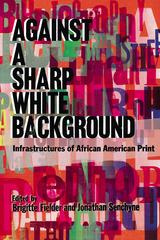

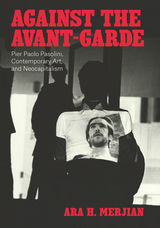
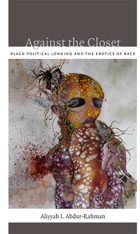
Abdur-Rahman brings black feminist, psychoanalytic, critical race, and poststructuralist theories to bear on literary genres from slave narratives to science fiction. Analyzing works by African American writers, including Frederick Douglass, Pauline Hopkins, Harriet Jacobs, James Baldwin, and Octavia Butler, she shows how literary representations of transgressive sexuality expressed the longings of African Americans for individual and collective freedom. Abdur-Rahman contends that those representations were fundamental to the development of African American forms of literary expression and modes of political intervention and cultural self-fashioning.
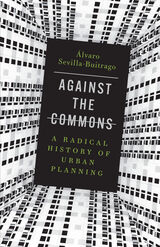
An alternative history of capitalist urbanization through the lens of the commons
Characterized by shared, self-managed access to food, housing, and the basic conditions for a creative life, the commons are essential for communities to flourish and protect spaces of collective autonomy from capitalist encroachment. In a narrative spanning more than three centuries, Against the Commons provides a radical counterhistory of urban planning that explores how capitalism and spatial politics have evolved to address this challenge.
Highlighting episodes from preindustrial England, New York City and Chicago between the 1850s and the early 1900s, Weimar-era Berlin, and neoliberal Milan, Álvaro Sevilla-Buitrago shows how capitalist urbanization has eroded the egalitarian, convivial life-worlds around the commons. The book combines detailed archival research with provocative critical theory to illuminate past and ongoing struggles over land, shared resources, public space, neighborhoods, creativity, and spatial imaginaries.
Against the Commons underscores the ways urbanization shapes the social fabric of places and territories, lending particular awareness to the impact of planning and design initiatives on working-class communities and popular strata. Projecting history into the future, it outlines an alternative vision for a postcapitalist urban planning, one in which the structure of collective spaces is ultimately defined by the people who inhabit them.
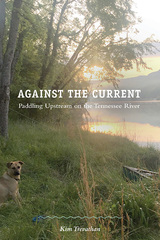
In August 1998 Kim Trevathan summoned his beloved 45-pound German shepherd mix, Jasper, and paddled a canoe down the Tennessee River, an adventure chronicled in Paddling the Tennessee River: A Voyage on Easy Water. Twenty years later, in Against the Current: Paddling Upstream on the Tennessee River, he invites readers on a voyage of light-hearted rumination about time, memory, and change as he paddles the same river in the same boat—but this time going upstream, starting out in early spring instead of late summer. In sparkling prose, Trevathan describes the life of the river before and after the dams, the sometimes daunting condition of its environment, its banks’ host of evolving communities—and also the joys and follies of having a new puppy, 65-pound Maggie, for a shipmate.
Trevathan discusses the Tennessee River’s varied contributions to the cultures that hug its waterway (Kentuckians refer to it as a lake, but Tennesseans call it a river), and the writer’s intimate style proves a perfect lens for the passageway from Kentucky to Tennessee to Alabama and back to Tennessee. In choice observations and chance encounters along the route, Trevathan uncovers meaningful differences among the Tennessee Valley’s people—and not a few differences in himself, now an older, wiser adventurer.
Whether he is struggling to calm his land-loving companion, confronting his body’s newfound aches and pains, craving a hard-to-find cheeseburger, or scouting for a safe place to camp for the night, Trevathan perseveres in his quest to reacquaint himself with the river and to discover new things about it. And, owing to his masterful sense of detail, cadence, and narrative craft, Trevathan keeps the reader at the heart of the journey. The Tennessee River is a remarkable landmark, and this text exhibits its past and present qualities with a perspective only Trevathan can provide.
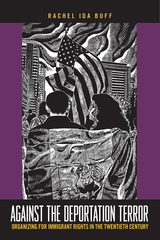
Despite being characterized as a “nation of immigrants,” the United States has seen a long history of immigrant rights struggles. In her timely book Against the Deportation Terror, Rachel Ida Buff uncovers this multiracial history. She traces the story of the American Committee for the Protection of the Foreign Born (ACPFB) from its origins in the 1930s through repression during the early Cold War, to engagement with “new” Latinx and Caribbean immigrants in the 1970s and early 1980s.
Functioning as a hub connecting diverse foreign-born communities and racial justice advocates, the ACPFB responded to various, ongoing crises of what they called “the deportation terror.” Advocates worked against repression, discrimination, detention, and expulsion in migrant communities across the nation at the same time as they supported reform of federal immigration policy. Prevailing in some cases and suffering defeats in others, the story of the ACPFB is characterized by persistence in multiracial organizing even during periods of protracted repression.
By tracing the work of the ACPFB and its allies over half a century, Against the Deportation Terror provides important historical precedent for contemporary immigrant rights organizing. Its lessons continue to resonate today.

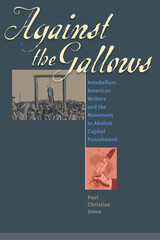
In Against the Gallows, Paul Christian Jones explores the intriguing cooperation of America’s writers—including major figures such as Walt Whitman, John Greenleaf Whittier, E. D. E. N. Southworth, and Herman Melville—with reformers, politicians, clergymen, and periodical editors who attempted to end the practice of capital punishment in the United States during the 1840s and 1850s. In an age of passionate reform efforts, the antigallows movement enjoyed broad popularity, waging its campaign in legislatures, pulpits, newspapers, and literary journals.
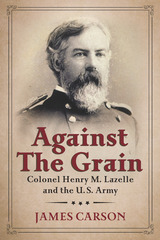
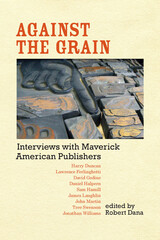
This collection is the first of its kind to explore with the publishers themselves the historical, aesthetic, practical, and personal impulses behind literary publishing. The publishers included are Harry Duncan (the Cummington Press), Lawrence Ferlinghetti (City Lights), David Godine (David R. Godine), Daniel Halpern (the Ecco Press), Sam Hamill and Tree Swenson (Copper Canyon Press), James Laughlin (New Directions), John Martin (Black Sparrow), and Jonathan Williams (the Jargon Society). Their passion for books, their belief in their individual visions of what publishing is or could be, their inspired mulishness crackle on the page.
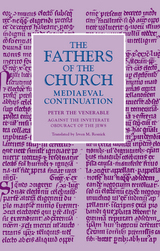

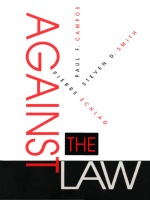
Linked by a persistent inquiry into the nature and identity of “the law,” these essays are informed by the conviction that the conventional representations of law, both in law schools and the courts, cannot be taken at face value—that the law, as commonly conceived, makes no sense. The authors argue that the relentlessly normative prescriptions of American legal thinkers are frequently futile and, indeed, often pernicious. They also argue that the failure to recognize the role that authorship must play in the production of legal thought plagues both the teaching and the practice of American law. Ranging from the institutional to the psychological and metaphysical deficiencies of the American legal system, the depth of criticism offered by Against the Law is unprecedented.
In a departure from the nearly universal legitimating and reformist tendencies of American legal thought, this book will be of interest not only to the legal academics under attack in the book, but also to sociologists, historians, and social theorists. More particularly, it will engage all the American lawyers who suspect that there is something very wrong with the nature and direction of their profession, law students who anticipate becoming part of that profession, and those readers concerned with the status of the American legal system.
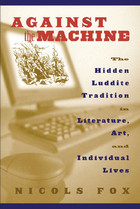
In this timely and incisive work, Nicols Fox examines contemporary resistance to technology and places it in a surprising historical context. She brilliantly illuminates the rich but oftentimes unrecognized literary and philosophical tradition that has existed for nearly two centuries, since the first Luddites—the ""machine breaking"" followers of the mythical Ned Ludd—lifted their sledgehammers in protest against the Industrial Revolution. Tracing that current of thought through some of the great minds of the 19th and 20th centuries—William Blake, Mary Shelley, Charles Dickens, John Ruskin, William Morris, Henry David Thoreau, Ralph Waldo Emerson, Robert Graves, Aldo Leopold, Rachel Carson, and many others—Fox demonstrates that modern protests against consumptive lifestyles and misgivings about the relentless march of mechanization are part of a fascinating hidden history. She shows as well that the Luddite tradition can yield important insights into how we might reshape both technology and modern life so that human, community, and environmental values take precedence over the demands of the machine.
In Against the Machine, Nicols Fox writes with compelling immediacy—bringing a new dimension and depth to the debate over what technology means, both now and for our future.
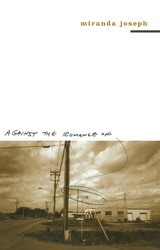

Reconstructing the dramatic struggle surrounding the building of the New Tokyo (Narita) International Airport near Sanrizuka, this scrutiny of modern protest politics dispels the myth of corporate Japan’s unassailable success. While sensitive to the specific events they describe, the authors provide analyses of broader contemporary issues—the sources of violence in an orderly society and the problems of democratic theory in an institutional setting.
Narita Airport, the largest single government project in Japan, has been the scene of intense conflict over what might be called the unfinished business of Japan as number one. Since 1965, small groups of farmers have been fighting to protect their land, first from the bulldozers, then from the environmental damage of a modern airport. They were joined in the battle by militants from New Left sects, students, and other protesters representing peace, antinuclear, and antipollution issues. Using field observation, in-depth interviewing, and firsthand experience drawn from living in the “fortresses” surrounding the airport, the authors examine the conflict and violence that ensued. They describe the confrontations from the point of view of each group of participants, pinpointing weaknesses in the Japanese political and bureaucratic systems that prolonged and heightened the struggle: the lack of effective due process, inadequate consultative mechanisms outside elite circles, and the failure of local government to represent local issues.
In a broad adaptation of their findings, David Apter and Nagayo Sawa show that the problems of the Narita situation are also endemic to other industrialized countries. Their discussion of violent protest in advanced societies explores how it evolves, who is caught up in it, and the ways that governments respond. Finally, they identify the limitations of contemporary social science theories in addressing in human terms such volcanic eruptions. To overcome these shortcomings they combine several approaches—structural, experiential, and functional—and devise alternative ways to enter the day-to-day lives of the people studied.
Against the State in no way diminishes the magnitude of Japan’s accomplishments. However, the authors find in the Narita protest evidence of that country’s still unfelt need to address its most abstract and pressing moral concerns. Their book raises important questions about the nature of extra-institutional protest and authority in modern states.
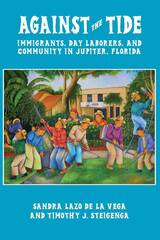
At the beginning of the twenty-first century, Jupiter was in the throes of immigration debates. A decade earlier, this small town had experienced an influx of migrants from Mexico and Guatemala. Immigrants seeking work gathered daily on one of the city’s main streets, creating an ad-hoc, open-air labor market that generated complaints and health and human safety concerns. What began as a local debate rapidly escalated as Jupiter’s situation was thrust into the media spotlight and attracted the attention of state and national anti-immigrant groups. But then something unexpected happened: immigrants, neighborhood residents, university faculty and students, and town representatives joined together to mediate community tensions and successfully moved the informal labor market to the new El Sol Neighborhood Resource Center.
Timothy J. Steigenga, who helped found the center, and Lazo de la Vega, who organized students in support of its mission, describe how El Sol engaged the residents of Jupiter in a two-way process of immigrant integration and helped build trust on both sides. By examining one city’s search for a positive public policy solution, Against the Tide offers valuable practical lessons for other communities confronting similar challenges.
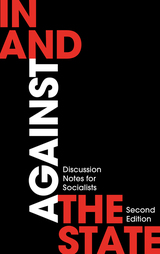
Originally published as a pamphlet in 1979 and again by Pluto in 1980, In and Against the State brought together questions of working-class struggle and state power, exploring how revolutionary socialists might reconcile working in the public sector with their radical politics. Informed by autonomist political ideas and practices that were central to the protests of 1968, the book’s authors spoke to a generation of activists wrestling with the question of where to place their energies.
Forty years have passed, yet the questions it posed are still to be answered. As the eclipse of Corbynism and the onslaught of the global pandemic have demonstrated with brutal clarity, a renewed socialist strategy is needed more urgently than ever.
This edition includes a new introduction by Seth Wheeler and an interview with John McDonnell that reflect on the continuing relevance of In and Against the State and the questions it raises.
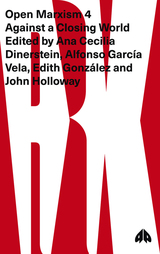
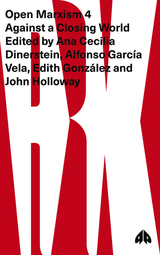
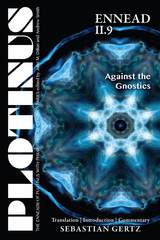
How was the universe created, and what is our place within it? These are the questions at the heart of Plotinus’ Against the Gnostics. For the Gnostics, the universe came into being as a result of the soul’s fall from intelligible reality—it is the evil outcome of a botched creation. Plotinus challenges this, and insists that the soul’s creation of the world is the necessary consequence of its contemplation of the ideal forms. While the Gnostics claim to despise the visible universe, Plotinus argues that such contempt displays their ignorance of the higher realities of which the cosmos is a beautiful image.
Against the Gnostics is a polemical text. It aims to show the superiority of Plotinus’ philosophy over that of his Gnostic rivals, and poses unique challenges: Plotinus nowhere identifies his opponents by name, he does not set out their doctrines in any great detail, and his arguments are frequently elliptical. The detailed commentary provides a guide through these difficulties, making Plotinus’ meandering train of thought in this important treatise accessible to the reader.

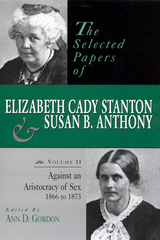
The second volume picks up the story of Stanton and Anthony at the end of 1866, when they launched their drive to make universal suffrage the priority of Reconstruction. Through letters, speeches, articles, and diaries, this volume recounts their years as editor and publisher of the weekly paper the Revolution, their extensive travels, and their lobbying with Congress. It touches on the bitter division that occurred among suffragists over such controversial topics as marriage and divorce, and a national debate over the citizenship of women under the Fourteenth and Fifteenth Amendments. By the summer of 1873, when this volume ends, Anthony stood convicted of the federal crime of illegal citizenship of women under the Fourteenth and Fifteenth Amendments. By the summer of 1873, when this volume ends, Anthony stood convicted of the federal crime of illegal voting. An irate Stanton warned, "I felt afresh the mockery of this boasted chivalry of man towards woman."
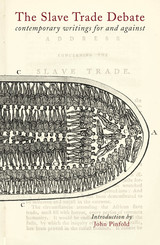
More than fifty years before the question of slavery launched the United States into the bloody turmoil of the American Civil War, Britain wrestled passionately with the same issues. A flood of pamphlets published by both abolitionists and slavery proponents fueled the debate, and they are now collected here in this fascinating volume in commemoration of the Abolition of the Slave Trade Act, 1807.
Written during the 1780s and 1790s, the pamphlets confront the issues surrounding slavery, such as the Rights of Man, the economic health of the British colonies, poverty in England, and, most prominently, the economic and moral condition of the African slaves. The authors on both sides of the debate—including such prominent figures as the eventual King William IV, Sir John Gladstone (father of the future Prime Minister William Gladstone), and the leading abolitionist William Wilberforce—draw upon biblical scriptures to justify their positions, providing illuminating insights into the theological debates of the time as well. Also included in the volume are an excerpt of abolitionist James Ramsay’s journal and an informative introduction that places the writings in their historical and social contexts. The Slave Trade Debate is an essential resource for scholars of transatlantic slavery and British history.
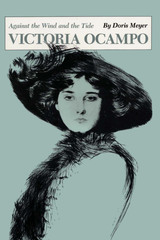
The "first lady of Argentine letters," Victoria Ocampo is best known as the architect of cultural bridges between the American and European continents and as the founder and director of Sur, an influential South American literary review and publishing house.
In this first biographical study in English of "la superbe Argentine," originally published in 1979, Doris Meyer considers Victoria Ocampo's role in introducing European and North American writers and artists to the South American public—through the pages of her review, through translations of their work, and through lecture tours and recitations. She examines Ocampo's personal relationships with some of the most illustrious writers and thinkers of this century—including José Ortega y Gasset, Rabindranath Tagore, Count Hermann Keyserling, Virginia Woolf, Adrienne Monnier, Vita Sackville-West, Gabriela Mistral, and many others. And she portrays an extraordinary woman who rebelled against the strictures of family and social class to become a leading personality in the fight for women's rights in Argentina and, later, a steadfast opponent of the Perón regime, for which she was sent to jail in 1953.
Fifteen of Victoria Ocampo's essays, selected from her more than ten volumes of prose and translated by Doris Meyer, complement the biographical study.
READERS
Browse our collection.
PUBLISHERS
See BiblioVault's publisher services.
STUDENT SERVICES
Files for college accessibility offices.
UChicago Accessibility Resources
home | accessibility | search | about | contact us
BiblioVault ® 2001 - 2024
The University of Chicago Press









